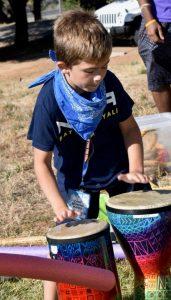 Prosthetic and orthotic devices are custom made tools for your child to help enhance function. Devices can be used for daily use or designed for a specific activity.
Prosthetic and orthotic devices are custom made tools for your child to help enhance function. Devices can be used for daily use or designed for a specific activity.
For those who may have an absence of a hand or arm, prosthetics can sometimes bridge a functional gap. Prosthetics can be made to help with activities from balanced crawling and holding a bottle, to climbing monkey bars, participating in sports, and playing a wide variety of musical instruments. Some individuals choose to wear their prosthesis from morning to night every day. Most choose only to wear them only to help with specific tasks. Many find wearing no prosthesis at all is the best option. Some prosthetics look similar to a natural hand and arm. Others have more interesting and functional shapes and can be covered with unique designs, cartoon characters, or superheroes!
At Pediatric Hand Study Group each prosthetic design is as unique as each child’s personality and specific functional needs. Children are seen and followed-up by our doctors and rehabilitation team members to develop a customized treatment plan. We continue to follow up year-by-year to make sure devices continue to fit, and the design is continually updated to remain functionally relevant to each child as they grow.
When meeting with a prosthetic specialist, the prosthetist (Pros-the-tist) for the first time, it is helpful to ask a few questions to establish a united set of expectations.
In addition to anything you are curious about, a few examples of questions to ask are:
- What has been your experience working with this specific amputation level?
- What are the pros and cons of the various design options for a prosthesis at this amputation level?
- What is my payment responsibility for the initial prosthesis and any needed follow-up? *At Shriners Hospitals for Children – Northern California, children are treated without regard for the ability to pay.
Lastly, remember that your happiness with, and the usefulness of a prosthesis will be directly related to the expectations and design decisions you and your prosthetist make, quality of the work they provide, and the effort that you and your child make to use and wear the device. You should expect the prosthesis to be a fun, comfortable, and useful tool.
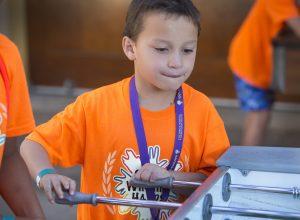 Pediatric hand surgeons specialize in congenital and acquired hand, arm, and shoulder conditions. They are the leaders of the Pediatric Hand Team. Surgeons will meet with your child and your family and assess the current function in your child’s hand. They will also assess functional activities your child and your family want your child to be able to do. From there, the surgeons will discuss surgical intervention options if appropriate and / or refer to therapeutic or prosthetic / orthotic interventions to maximize your child’s hand function. If your child doesn’t need surgery, or if you and your child choose not to have surgery, pediatric hand surgeons can continue to follow your child with ongoing assessments and discussions regarding any issues that arise. Many children with hand differences visit pediatric hand surgeons for many years without ever needing surgery.
Pediatric hand surgeons specialize in congenital and acquired hand, arm, and shoulder conditions. They are the leaders of the Pediatric Hand Team. Surgeons will meet with your child and your family and assess the current function in your child’s hand. They will also assess functional activities your child and your family want your child to be able to do. From there, the surgeons will discuss surgical intervention options if appropriate and / or refer to therapeutic or prosthetic / orthotic interventions to maximize your child’s hand function. If your child doesn’t need surgery, or if you and your child choose not to have surgery, pediatric hand surgeons can continue to follow your child with ongoing assessments and discussions regarding any issues that arise. Many children with hand differences visit pediatric hand surgeons for many years without ever needing surgery.
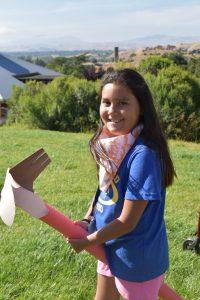 Pediatric hand teams include anesthesiologists who take care of children (pediatric anesthesiologists). If your child is having surgery, it is very important that the anesthesiologist assigned to your child is a pediatric anesthesiologist, because children may react differently to anesthesia than adults. All of the anesthesiologists at Shriners Hospitals for Children – Northern California are pediatric anesthesiologists.
Pediatric hand teams include anesthesiologists who take care of children (pediatric anesthesiologists). If your child is having surgery, it is very important that the anesthesiologist assigned to your child is a pediatric anesthesiologist, because children may react differently to anesthesia than adults. All of the anesthesiologists at Shriners Hospitals for Children – Northern California are pediatric anesthesiologists.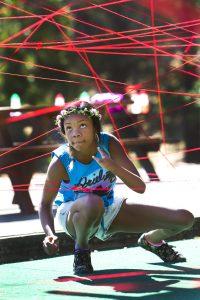 Advance practice providers (APP) are medical professionals who work collaboratively with surgeons to provide well-organized, cohesive care both in the hospital and clinic setting. APPs are facilitators of multidisciplinary care. This means they help ensure that the growing child is receiving the individualized care needed to assist them in achieving developmental milestones. The goal of an APP working with children with congenital limb differences is to support the growth of each child functionally, physical, mentally, and emotionally.
Advance practice providers (APP) are medical professionals who work collaboratively with surgeons to provide well-organized, cohesive care both in the hospital and clinic setting. APPs are facilitators of multidisciplinary care. This means they help ensure that the growing child is receiving the individualized care needed to assist them in achieving developmental milestones. The goal of an APP working with children with congenital limb differences is to support the growth of each child functionally, physical, mentally, and emotionally. Nurses are licensed professionals who provide care by treating the whole patient physically, mentally, socially, and spiritually. Nurses give round the clock care in the hospital setting. They provide pain management, comfort measures, and distraction while monitoring your child’s status to keep her/him safe to facilitate recovery. Nurses can give advice, coordinate care, and assist with removing barriers that may prevent the best possible outcome for your child.
Nurses are licensed professionals who provide care by treating the whole patient physically, mentally, socially, and spiritually. Nurses give round the clock care in the hospital setting. They provide pain management, comfort measures, and distraction while monitoring your child’s status to keep her/him safe to facilitate recovery. Nurses can give advice, coordinate care, and assist with removing barriers that may prevent the best possible outcome for your child.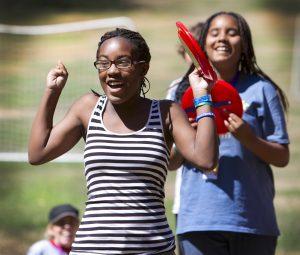 Occupational and Physical Therapists work together as a rehabilitation team to support developmental mobility and maximize function. For children born with the absence of a hand or arm, therapists are available to assess and treat their unique needs.
Occupational and Physical Therapists work together as a rehabilitation team to support developmental mobility and maximize function. For children born with the absence of a hand or arm, therapists are available to assess and treat their unique needs. Prosthetic and orthotic devices are custom made tools for your child to help enhance function. Devices can be used for daily use or designed for a specific activity.
Prosthetic and orthotic devices are custom made tools for your child to help enhance function. Devices can be used for daily use or designed for a specific activity.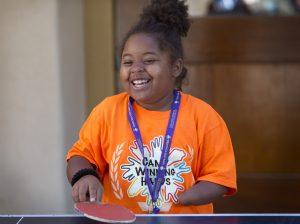 A licensed clinical social worker (LCSW) is part of your treatment team. Having a child with a medical concern can, at times, be stressful for both parent and child. Your child’s overall well-being is an important outcome for any medical care provided. Your social worker acts as your liaison with the medical team to provide information important to this outcome. They may talk with you about school and home environments, financial matters, or other concerns you have to develop a plan of care with your medical team.
A licensed clinical social worker (LCSW) is part of your treatment team. Having a child with a medical concern can, at times, be stressful for both parent and child. Your child’s overall well-being is an important outcome for any medical care provided. Your social worker acts as your liaison with the medical team to provide information important to this outcome. They may talk with you about school and home environments, financial matters, or other concerns you have to develop a plan of care with your medical team. Child life specialists work with your child if there are concerns around surgery. They help to ease anxiety and create a positive environment. Child life specialists will bring in surgical related materials and dolls to help describe the surgery and what to expect after. They allow children to explore materials, such as stethoscopes, casting materials, and bandages, to increase their comfort while allowing them to talk through their anxieties and questions.
Child life specialists work with your child if there are concerns around surgery. They help to ease anxiety and create a positive environment. Child life specialists will bring in surgical related materials and dolls to help describe the surgery and what to expect after. They allow children to explore materials, such as stethoscopes, casting materials, and bandages, to increase their comfort while allowing them to talk through their anxieties and questions.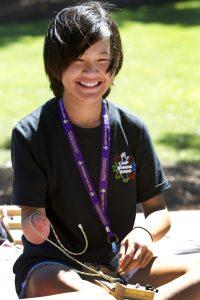 Transition at Pediatric Hand Study Group is more than preparing and assisting adolescents, young adults, and their families from pediatric to adult health care providers. Our transition plan starts on their first visit to the clinic or hospital and is integrated with all staff considering the whole child. Transition is in school, sports, and recreation, hobbies, living environment, work, and community. Information and awareness to families about community resources are provided and encouraged as developmentally appropriate.
Transition at Pediatric Hand Study Group is more than preparing and assisting adolescents, young adults, and their families from pediatric to adult health care providers. Our transition plan starts on their first visit to the clinic or hospital and is integrated with all staff considering the whole child. Transition is in school, sports, and recreation, hobbies, living environment, work, and community. Information and awareness to families about community resources are provided and encouraged as developmentally appropriate.